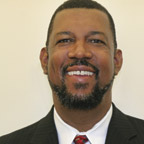
During the last 12 months, our region has seen the toughest economic challenge since the early 1980s, with unemployment rates reaching, at some points, double digits, and thousands of workers laid off or impacted by business closings. In these times, workers must develop short- and long-term strategies to secure their economic futures. These strategies include becoming aware of the numerous public resources that are available to help dislocated, unemployed or underemployed workers; developing realistic career plans; networking with peers and other professionals; and sharpening or upgrading professional skills.
There are numerous programs and services available to individuals who have lost their jobs. These services include state unemployment offices, workforce development and one-stop centers, community colleges and educational institutions, and public and community-based programs and services.
State unemployment centers assist individuals with unemployment insurance payments to serve as a temporary source of income as they develop plans to re-enter the workforce. Workforce development and regional one-stop centers offer workers a wide variety of workforce services through partnerships among dozens of organizations. These services include: internet job searches; job listings and referrals; resume design; career fairs; on-site interviews; career planning and counseling; skills training; education assistance; and supportive services.
Community colleges and other education institutions offer certified and degreed education and occupational training programs, as well as a host of customized training, education assistance and supportive services to assist students. Other public agencies and community-based organizations can offer a wide range of assistance to individuals and families. These services can range from financial assistance, financial planning, energy assistance, individual and family counseling, medical assistance, and housing services.
Career planning and networking are essential steps in re-entering the labor market or moving forward in one's career. Career planning includes assessing one's interests, skills, training and experiences. It also involves research on short- and long-term labor market and occupational trends to determine where the best opportunities for employment will be. Career counselors can help individuals analyze this information and develop viable and realistic career plans and strategies.
Career planning services are available at workforce and one-stop centers, community colleges, public agencies, and community-based organizations. Once one has a career plan in place, networking can be an important tool to touch base with family, friends, professional acquaintances and others to find out about job leads. These informal social networks can be quite effective at identifying potential job openings.
Finally, long-term viability in the labor market will involve ongoing education, training and skill development. Economies are dynamic. As a result, products, services, industries and business processes are constantly changing. This process is driven by competition, innovation and new technologies. As the pace of competition, innovation and new technologies increases, economies become more dynamic. This constant and often unpredictable change means that careers and jobs may change drastically over a lifetime. It also means that many jobs will disappear as new ones emerge in the wake of ongoing innovation and technological changes.
When we factor in the reality of the global economy and competition, individuals and businesses are forced to compete in a worldwide talent pool. Economic security in this new economy will depend on the viability and relevance of one's talents, skills and abilities. This will require individuals, organizations, communities and regions to constantly reassess and upgrade their skills and talents to meet the challenges of this dynamic and ever-changing global knowledge and innovation economy. iBi

